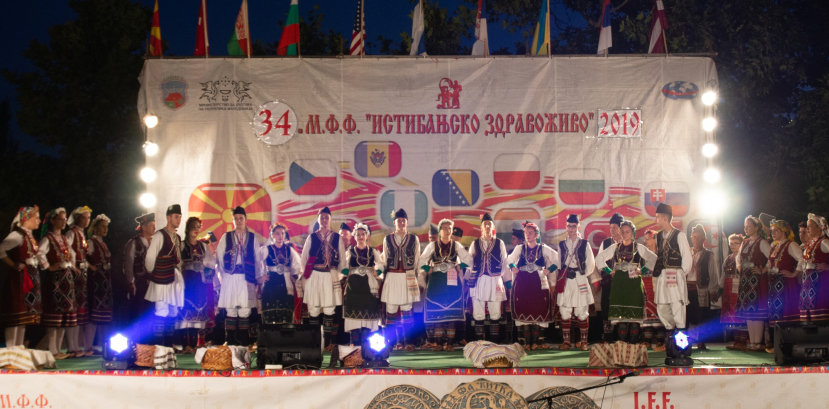Istibanja is a village located in eastern Macedonia, close to the Bulgarian border, in a place where, at the foot of Osogovo mountains, the Bregalnica river cuts through Kochansko Pole. The Macedonians settled here centuries ago, and till this day their descendants have preserved ancient customs, songs and dances. KITKA was established in 1975 and ever since then it has actively cultivated the wealth of the country’s culture with the aid of costumes, dances, as well as songs performed by soloists, in the form of singing groups, a musical band playing authentic instruments, and three dancing groups (comprising children, youth and adults). To learn and preserve that which in a nation’s culture is most precious and truest, that which makes for its distinctness and makes its history - these are the main tasks that the ensemble’s members have set themselves. Thanks to them, many ancient customs, songs and dances have been saved from oblivion. The KITKA ensemble has presented them at competitions and festivals in, among others, Italy, Germany, Poland, the USA, Canada, Portugal, Spain, Japan and China. Thanks to its original performances, the dynamic dances, the enchanting temperament of the performances characterized by the beauty and harmony of rhythm, the wealth of costumes and comprehensive choreography, the ensemble has won many prizes at numerous festivals. Under the auspices of CIOFF and IOV the ensemble also organizes the “Istibanjsko Zdravozivo” Folk Festival , which is every year attended by around twenty children’s folk ensembles from all over the world. The programme prepared for the Festival of the Children of Mountains is related to the custom of “Orata kopata,” and treats of the inhabitants of the region of Osogovska Planina - a mountain range on the border between Macedonia and Bulgaria, between the Vardar and Struma rivers. On the eve of Lent, children meet in the village centre to make bonfires, roast potatoes, jump over fire, play and above all dance the characteristic circle dances to the rhythm of traditional Balkan instruments, e.g. bagpipes, „kaval” (a type of flute), „tambura” (a type of plucked, stringed instrument), „kemane” (a bowed, stringed instrument), „tapan” (a type of drum). Stojko Mitkovski is the ensemble leader and choreographer.
KITKA
Edition 2020/2021

